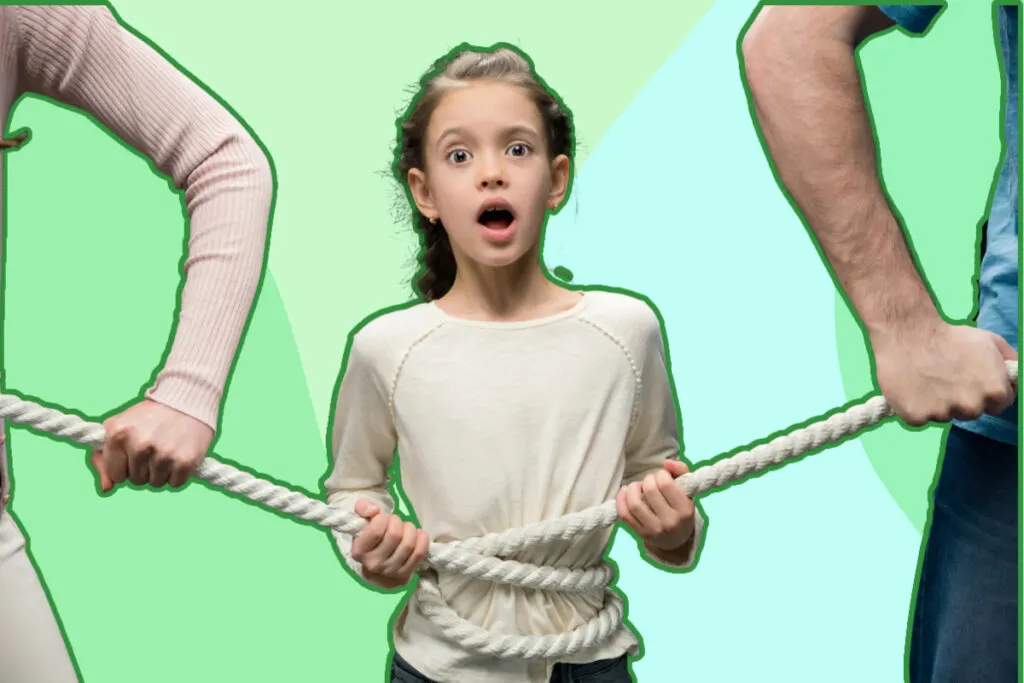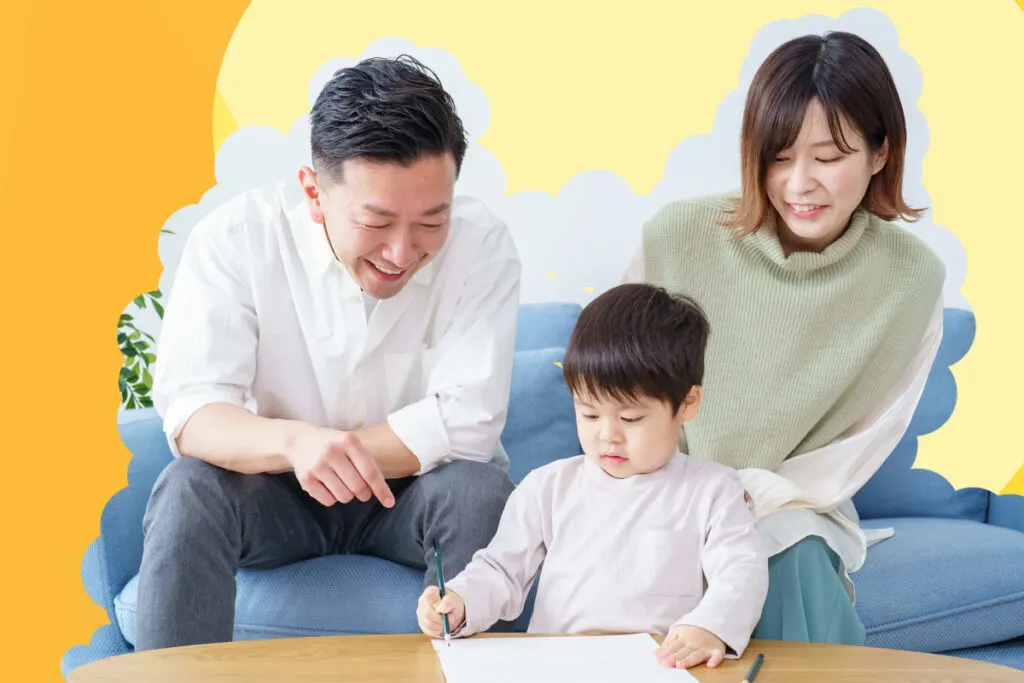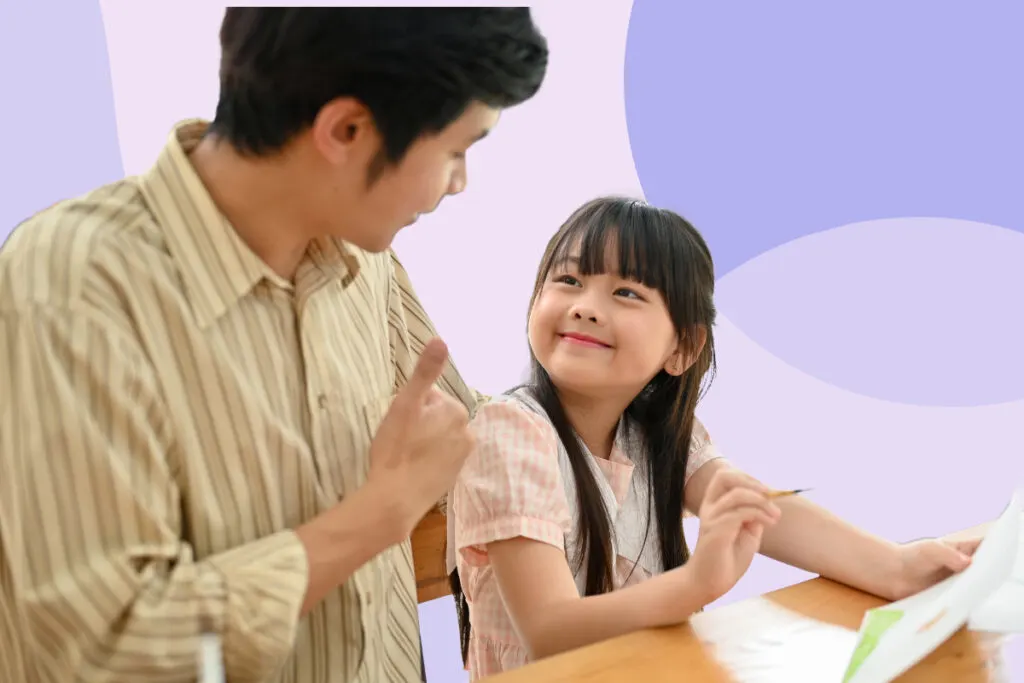TABLE OF CONTENTS
What Is Overparenting
Overparenting is a parenting style marked by applying developmentally inappropriate levels of control and assistance to children, usually adolescents and emerging adults. This parenting approach entails a high degree of parental control, overprotection, and involvement in every aspect of the child’s life.
This style of parenting is sometimes called helicopter parenting, out-of-control parenting1, lawnmower parenting, overprotective parenting2, and intensive parenting3.
Intense parents are preoccupied with protecting their children from harm and ensuring their success.
They often anticipate problems and assist their child with tasks regardless of whether it is requested.
Despite its potential benefits, this parenting style can impede children’s development and learning process.
Rather than letting their children make their own decisions, parents constantly monitor them, solve all their problems, protect them from disappointment, and make all their decisions for them.
Anecdotes of overly involved parents include writing term papers for their children or arguing with college professors about grades.
Some parents of recent college graduates are notorious for being involved in their children’s job application process, job interviews, and salary negotiations4.
Overparenting can extend to the workplace and result in behaviors like parents attending job fairs instead of their grown children, calling the company to complain about performance evaluations, or even trying to negotiate higher salaries for their children5.

Involved Parenting vs. Overinvolved Parenting
Studies have linked parenting approaches to children’s outcomes, with authoritative parenting being the most effective approach.
This parenting style combines high parental demandingness and responsiveness, improving children’s emotional and behavioral well-being6.
Additionally, researchers have found that parental involvement is one of the strongest predictors of children’s academic success.
Therefore, it seems prudent for parents to be responsive and involved in their children’s education.
However, there is a distinction between being involved and being overinvolved. Responsiveness is also different from hovering.
Involved parents take an active interest in their children’s lives, such as attending school events, helping with homework, and offering guidance and support when needed.
Overinvolved parents, on the other hand, go beyond that, including excessive control, risk aversion, overprotection, preemptive problem-solving, and intrusive involvement.
While parent involvement can help children build self-confidence and a sense of competence, over-involvement does the opposite.
An over-involved parent conveys that the child is incapable of doing things on their own, which erodes their self-efficacy7.

Signs of Overparenting
Here are some examples of overparenting.
- Doing the child’s homework or school projects.
- Calling the teacher and asking for a better grade.
- Accompanying a child to a job interview.
- Complaining about a negative review and negotiating salary on their behalf.
- Taking over a task whenever the child feels a little stuck.
- Planning and micromanaging the child’s activities.
- Demanding every child get an award in competitions.
- Not allowing the child to make decisions such as choosing a college.
- Filling out the child’s college application forms and writing the application essays.
- Keeping the child, even a teenager, with their parents at all times.

Effects of Overparenting
There is often good intention behind overparenting. But it seems to take good parenting of responsiveness and involvement to a whole new level.
The parent actively shapes and manipulates the child’s environment to maximize their success, only to do the opposite.
In most cases, extreme forms of parenting are not the optimal parenting approach to child-rearing.
Here are the negative impacts on children.
Lower Self-Esteem
While responsive parenting improves a child’s self-esteem, overparenting is associated with lower perceived confidence and decreased self-efficacy, which can negatively affect a child’s academic performance.
Parents who are overly involved show doubt about their children’s competence.
Children may develop negative self-talk, such as “I don’t feel confident about my ability to solve everyday problems.”8
University students with overprotective parents are found to have less confidence, lower academic performance, and poorer adjustment to college life9.
Ineffective Coping Skills
Overparented adult children tend to have compromised coping skills and underdeveloped problem-solving skills.
These individuals tend to use dysfunctional emotion-focused coping strategies, such as self-preoccupation and fantasizing reactions, to cope with stress10.
When faced with challenges, children develop coping skills by solving problems independently.
But if parents intervene and find a solution for them, they miss out on the opportunity to develop these essential skills.
Consequently, even when the child matures, they are reliant on their parents and lack the skills to handle similar problems in the future.
Mental Health Issues
While responsive parenting is effective parenting, hyper-responsive parenting is associated with worse mental health in children.
When parents are extremely risk-averse, anticipate danger, and limit their activities to keep their children safe, the children tend to develop depressive symptoms and anxiety disorders11.
Their maladaptive coping skills, such as internalizing and distancing, are associated with higher stress and anxiety levels in adulthood.
Other negative mental health issues include greater recreational use of pain pills12.
Narcissism and Entitlement
Overparenting is associated with narcissism and adult child entitlement.
In a 20-year longitudinal study, researchers have found that overparenting has a direct effect on the development of narcissism in young adults.
Having been overly indulged by parents who offered excessive gratification, adult children feel a sense of entitlement and continue to demand this kind of gratification as an adult.
When parents become too responsive in a way that is not developmentally appropriate, children become more likely to develop pathologically narcissistic child traits13.
Dependent On Others
Overparented children tend to become dependent on others and may develop maladaptive behavior in workplace scenarios.
In a study, students with overly involved parents relied more on others for solutions rather than taking responsibility.
They tend to have lower self-efficacy, not believing that they can accomplish tasks and goals by themselves. Consequently, they become dependent on others and fail to take responsibility at work.
It is crucial children develop independence by taking responsibility and experiencing natural consequences. Sparing your child from responsibility and negative consequences will hinder their development.

References
- 1.Nelson MK. Parenting Out of Control. New York University Press; 2020. doi:10.18574/nyu/9780814759080.001.0001
- 2.Pimentel D. Criminal child neglect and the free range kid: Is overprotective parenting the new standard of care. In: Utah L. Rev. ; 2012:947.
- 3.Bernstein G, Triger Z. Over-parenting. UC Davis L Rev. 2010;44:1221.
- 4.Daniel BV, Evans SG, Scott BR. Understanding Family Involvement in the College Experience Today. New Directions for Student Services. Published online 2001:3-13. doi:10.1002/ss.7
- 5.C. Bradley-Geist J, B. Olson-Buchanan J. Helicopter parents: an examination of the correlates of over-parenting of college students. Education + Training. Published online May 6, 2014:314-328. doi:10.1108/et-10-2012-0096
- 6.Jabeen F, Anis-ul-Haque M, Riaz MN. Parenting styles as predictors of emotion regulation among adolescents. Pakistan Journal of Psychological Research. 2013;28(1):85–105.
- 7.Liu Z, Riggio RE, Day DV, Zheng C, Dai S, Bian Y. Leader development begins at home: Overparenting harms adolescent leader emergence. Journal of Applied Psychology. Published online October 2019:1226-1242. doi:10.1037/apl0000402
- 8.Creveling CC, Varela RE, Weems CF, Corey DM. Maternal control, cognitive style, and childhood anxiety: A test of a theoretical model in a multi-ethnic sample. Journal of Family Psychology. Published online August 2010:439-448. doi:10.1037/a0020388
- 9.Darlow V, Norvilitis JM, Schuetze P. The Relationship between Helicopter Parenting and Adjustment to College. J Child Fam Stud. Published online May 8, 2017:2291-2298. doi:10.1007/s10826-017-0751-3
- 10.Segrin C, Woszidlo A, Givertz M, Montgomery N. Parent and Child Traits Associated with Overparenting. Journal of Social and Clinical Psychology. Published online June 2013:569-595. doi:10.1521/jscp.2013.32.6.569
- 11.Rapee RM, Schniering CA, Hudson JL. Anxiety Disorders During Childhood and Adolescence: Origins and Treatment. Annu Rev Clin Psychol. Published online April 1, 2009:311-341. doi:10.1146/annurev.clinpsy.032408.153628
- 12.LeMoyne T, Buchanan T. DOES “HOVERING” MATTER? HELICOPTER PARENTING AND ITS EFFECT ON WELL-BEING. Sociological Spectrum. Published online July 2011:399-418. doi:10.1080/02732173.2011.574038
- 13.Cramer P. Young adult narcissism: A 20 year longitudinal study of the contribution of parenting styles, preschool precursors of narcissism, and denial. Journal of Research in Personality. Published online February 2011:19-28. doi:10.1016/j.jrp.2010.11.004
